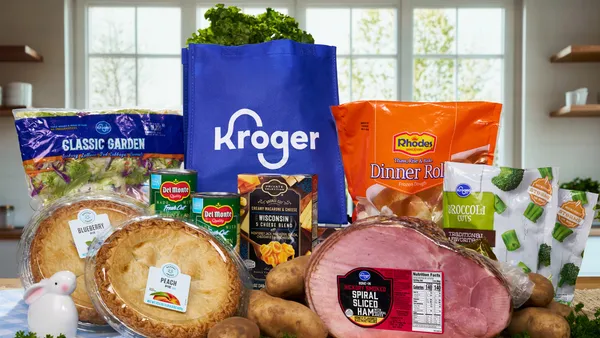Sprouts Farmers Market was already working to recapture its bountiful early days as a natural foods retailer when Jack Sinclair came on board as CEO last year. But in the 18 months since he arrived at the specialty grocer, Sinclair has dramatically accelerated the pace of change, positioning Sprouts to better connect with its core audience while setting aside initiatives he felt weren't bearing enough fruit.
Under Sinclair’s guidance, Sprouts has shifted gears from simply offering produce and other good-for-you products at low prices to driving sales by directly targeting consumers he defines as health enthusiasts and innovation-seekers. Sinclair's goal is for Sprouts to stand out by leaving traditional grocery retailing to the competition and concentrating on a distinct combination of assortment and shopping experience other stores aren’t able to match.
The U.S. is awaking to a "passion for food" that other countries already have, Sinclair said as he reflected on his prior experience working in the grocery industry in the United Kingdom.
“I think as things have evolved over the last few years, people are getting more interested in it, partly because of the health implications of the products and also because people are just more interested in where things come from," he said.
That focus has led Sinclair and his team at Sprouts to think deeply about what a specialty grocer should be — an effort that follows a rocky period for the format, and that's made more difficult by the myriad challenges brought on by the pandemic.
Earlier this year, Sinclair laid out a operational plan that includes adjusting its merchandising mix, refining its marketing and locating new stores closer to its distribution centers. The grocer plans to introduce a new store format next year that is 20% smaller than the 30,000-square-foot footprints typical Sprouts stores occupy today, yet is expected to bring in a comparable level of revenue.
The new locations will have an even stronger emphasis on fresh fruits and vegetables than current Sprouts stores, which are distinguished by their centrally positioned produce section, and will place less emphasis on often-costly design features, like meat, seafood and deli counters.
“My aspiration is how do we recreate that magic of what happened ... when all these things got started, which is making the product the hero, not the designs and the features and the bells and whistles” that have crept into the company’s more than 350 stores over the years, Sinclair said.
Scott Mushkin, who follows Sprouts as CEO of R5 Capital, said Sprouts has to execute on a number of fronts to fully achieve Sinclair's aspirations. "I think it's a very sound idea that he's doing to kind of bring back the farmers markets and to get back to the roots of the company," he said. "It's just that to replicate that and get the buying right is no easy task."
Sinclair’s strategy at Sprouts builds on his past roles in the grocery industry, which steeped him in the importance of operational details in enabling a retailer to thrive. He came to Sprouts from 99 Cents Only Stores, where he served as chief merchandising officer and later CEO. Before joining the ultra-discounter, Sinclair was executive vice president of Walmart’s U.S. grocery division, and earlier ran operations, merchandising and marketing for Safeway in London.
Despite his background, Sinclair has no intention of letting Sprouts lose its edge by moving toward more traditional grocers.
“One of the things I am trying to avoid us becoming is a super-efficient planogram-driven retail business, because I think if you do the kind of things ... where you get very disciplined about space and features and items, I think you miss something along the way,” Sinclair said during the company’s third-quarter earnings call in October.
In its quest to stand apart, Sprouts has focused on keeping prices low by purchasing excess food from farmers, not by artificially lowering prices in its stores to draw in consumers, Sinclair said during the interview. “This is our strategy, whether it’s pre-pandemic, post-pandemic or during the pandemic. We’re going to be putting ourselves in a place where we’ve got exceptional value in our produce and everyday products.”
Mushkin said Sinclair's efforts to help Sprouts stand out in the minds of the consumers it wants to reach are on target given that shoppers have cut down on the number of stores they visit in light of the pandemic, a dynamic that has put pressure on specialty grocers.
"Anything that is not offering a one-stop shop for the consumer seems to be kind of the negative side of this trend," said Mushkin. "What Jack is nailing, I think, is you've got to drive the traffic to your store, you've got to differentiate, you've got to make it worth the consumer's time to say, 'Hey, I can't get those products anywhere else.'"




 Read more
Read more








